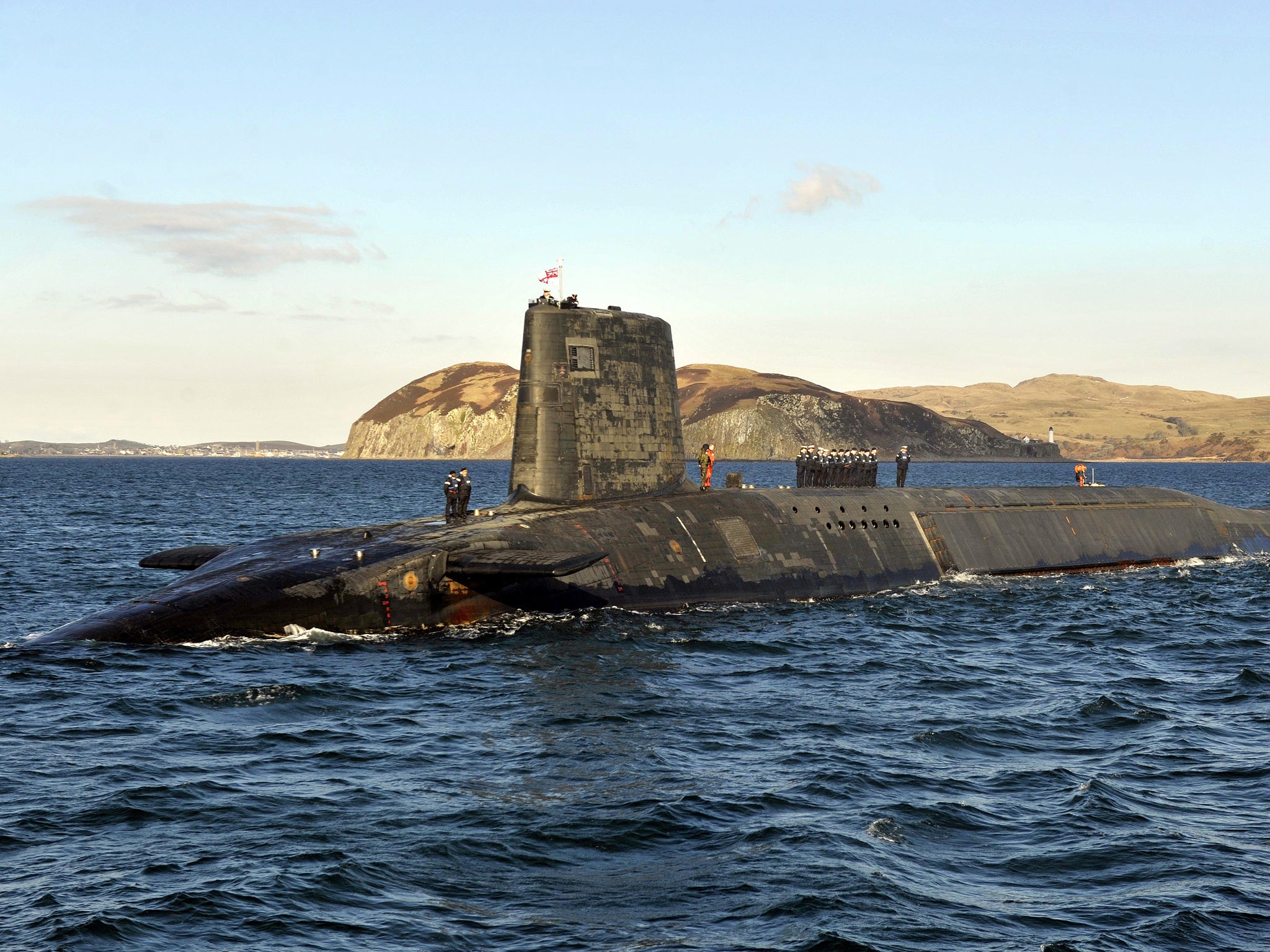Trident may be retained after Labour rejects Lib Dem idea of three nuclear subs
Lib Dems call for end of continuous deterrence and say scaling down could save £4bn

Britain looks certain to retain its current round-the-clock Trident nuclear weapons system after Labour rejected a scaled-down version proposed by the Liberal Democrats.
Opponents of the £25bn like-for-like replacement of the existing four Vanguard submarines favoured by the Conservatives had hoped that Labour and the Liberal Democrats would agree on a much smaller programme. It could have been part of a Lib-Lab coalition agreement if the 2015 election ends in a hung parliament.
The Liberal Democrats said downgrading to three submarines would save £4bn as they unveiled a review into the alternatives carried out by Cabinet Office officials. The Liberal Democrats called for an end to the current continuous at-sea deterrence, under which one of the vessels is always on patrol. The option of a two-submarine fleet will also be considered by the Liberal Democrats’ annual conference in September, and is likely to become the party’s policy.
The Blair and Brown governments backed a like-for-like replacement but Labour’s policy is being reviewed by Ed Miliband. He has received conflicting messages from different advisers about whether to water it down.
Yesterday Mr Miliband authorised a statement leaving Labour’s policy much closer to the Conservatives than the Liberal Democrats. Jim Murphy, the shadow Defence Secretary, said: “Labour has always said we are committed to the minimum credible independent nuclear deterrent, which we believe is best delivered through a continuous at-sea deterrent. It would require a substantial body of evidence for us to change that, but this review does not appear to offer such evidence.” The Tories argue that a round-the-clock deterrent requires four submarines.
However, the Labour manifesto in 2015 may pledge to reduce the number of warheads carried by the submarinesl. Mr Murphy said: “Labour would keep momentum on our disarmament efforts, looking at further reduction of missiles and warheads on deployed vessels, as well as taking a lead internationally to push the agenda of global anti-proliferation.”
John Woodcock, Labour MP for Barrow and Furness, where Royal Navy submarines are built, described the Liberal Democrat-led review as “shambolic”. He said: “The Lib Dems’ attempt to show Britain could scrap Trident or make do with a part-time nuclear deterrent has been fundamentally discredited.”
The Conservatives also criticised the Liberal Democrats. David Cameron said the Government’s policy was unchanged by the review, while Philip Hammond, the Defence Secretary, said the Liberal Democrats were “either naive or reckless”.
But Danny Alexander, the Liberal Democrat Chief Treasury Secretary who led the review, insisted that reducing the submarine fleet to three vessels and ending the continuous deterrent would be a major step towards nuclear disarmament. “Trident is the last, unreformed bastion of Cold War thinking. Britain in the 21st century, almost a quarter of a century after the fall of the Berlin Wall, needs to think about nuclear deterrence and disarmament in a fresh way,” he told the Royal United Services Institute.
Mr Alexander said: “We have a big decision to make in 2016, and this study shows that there are credible alternatives that don’t compromise our security but do allow us to move on from the Cold War.”
He conceded that alternatives to Trident were not affordable, and criticised the previous government for closing off in 2006 the option of installing nuclear-tipped Cruise missiles on Astute class submarines, which would now be too expensive because the four existing Vanguard subs were reaching the end of their life.
Mr Clegg, the Deputy Prime Minister, welcomed what he called the most thorough review of the UK’s nuclear deterrent ever. “I hope that today marks the beginning of a fact-based debate about Trident that will see us discussing what kind of deterrent is right for Britain in the 21st century,” he said.
Subscribe to Independent Premium to bookmark this article
Want to bookmark your favourite articles and stories to read or reference later? Start your Independent Premium subscription today.

Join our commenting forum
Join thought-provoking conversations, follow other Independent readers and see their replies